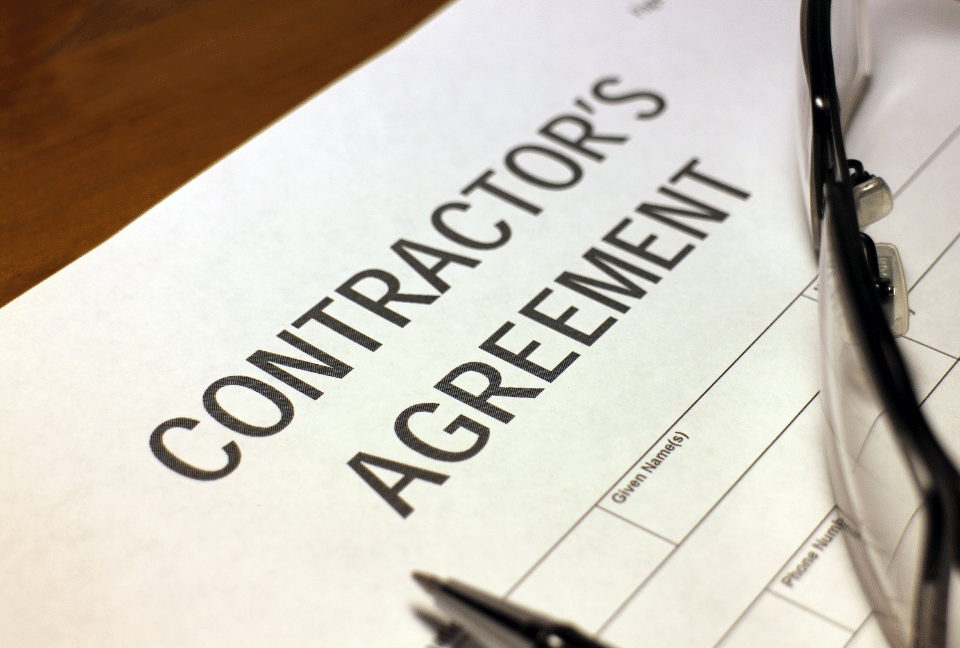Navigating Real Estate Contract Negotiations and Drafting: A Comprehensive Guide
Navigating Real Estate Contract Negotiations and Drafting: A Comprehensive Guide
Real Estate Contract Negotiations and Drafting: A Comprehensive Guide

Introduction:
Real estate transactions involve a multitude of complex legalities and intricacies that necessitate meticulous attention to detail. One critical aspect of the real estate process is contract negotiations and drafting. These tasks require expertise, precision, and a thorough understanding of the legal framework surrounding real estate transactions. In this article, we will delve into the importance of effective contract negotiations and drafting in real estate, discuss key considerations, and highlight the benefits of seeking professional assistance in this critical stage.\
The Significance of Contract Negotiations:
Real estate contract negotiations serve as the foundation for a successful transaction. These negotiations involve discussions and compromises between parties involved, including buyers, sellers, agents, and attorneys. The primary objective is to reach mutually agreeable terms that protect the interests of all parties involved. Key elements to consider during negotiations include purchase price, financing terms, contingencies, timelines, and potential disputes.
Effective Drafting for Clarity and Protection:
Once the negotiation phase is complete, the next step is to draft a comprehensive and legally sound contract. Real estate contracts are highly complex documents that outline the rights, obligations, and responsibilities of all parties involved. The purpose of drafting is to clearly define the terms and conditions of the agreement, minimize ambiguity, and mitigate potential disputes in the future.
Important Considerations in Real Estate Contract Drafting:
- Clear Identification of Parties: The contract should accurately identify all parties involved, including buyers, sellers, agents, and any other relevant stakeholders. Clear identification avoids confusion and ensures enforceability.
- Property Description and Terms: A detailed and accurate description of the property, including boundaries, structures, and any included amenities, is crucial. Additionally, terms related to purchase price, payment methods, financing arrangements, and contingencies should be explicitly outlined.
- Contingencies and Due Diligence: The contract should specify any contingencies, such as property inspections, appraisal, financing, and title search. These contingencies allow the parties to perform due diligence before finalizing the transaction.
- Legal Compliance and Disclosures: Real estate contracts must comply with local, state, and federal laws. It is essential to include necessary disclosures, such as lead-based paint disclosures, zoning restrictions, and any known defects or material facts about the property.
- Dispute Resolution and Remedies: The contract should address dispute resolution mechanisms, such as mediation or arbitration, to resolve potential conflicts. Additionally, it should outline remedies available in case of breach, such as specific performance or monetary damages.
Benefits of Professional Assistance:
Given the complexity and legal nuances involved in real estate contracts, seeking professional assistance is highly recommended. Real estate attorneys or experienced legal consultants specializing in real estate law can provide valuable guidance throughout the negotiation and drafting process. They possess in-depth knowledge of local laws, regulations, and best practices, ensuring that contracts are legally valid, comprehensive, and protective of their clients' interests.
Professional assistance offers several benefits:
- Legal Expertise: Professionals possess specialized knowledge of real estate law, contract drafting, and negotiations, ensuring that contracts are legally sound and protect their clients' rights.
- Risk Mitigation: Professionals conduct thorough due diligence, identify potential risks, and incorporate appropriate provisions to protect their clients from unforeseen circumstances or disputes.
- Contract Customization: Professionals can tailor contracts to meet the unique needs of each transaction, considering specific property attributes, financing arrangements, and client preferences.
- Negotiation Skills: Skilled negotiators can advocate for their clients' interests, striking a balance between favorable terms and maintaining positive relationships between parties.
- Peace of Mind: Engaging professional assistance provides peace of mind, knowing that experts are overseeing the contract process, reducing the likelihood of errors or oversights.
Conclusion:
In conclusion, navigating real estate contract negotiations and drafting is a critical aspect of any successful real estate transaction. It requires careful attention to detail, knowledge of legal requirements, and effective communication between all parties involved. By understanding the importance of effective contract negotiations and drafting, individuals and businesses can safeguard their interests, mitigate risks, and ensure a smooth and legally sound real estate transaction.
While it is possible to handle contract negotiations and drafting independently, seeking the assistance of experienced professionals, such as real estate attorneys or legal consultants, can provide significant benefits. These professionals possess the expertise, knowledge, and negotiation skills necessary to navigate complex legalities and protect the interests of their clients. They can help ensure that contracts are comprehensive, enforceable, and in compliance with applicable laws and regulations.
By engaging professional assistance, individuals and businesses can save time, avoid potential pitfalls, and have peace of mind knowing that their legal needs are being handled by experts. Whether it's analyzing terms and conditions, conducting due diligence, or resolving disputes, the guidance of a skilled professional can make a substantial difference in the success and efficiency of a real estate transaction.
In conclusion, when embarking on a real estate venture, it is crucial to prioritize effective contract negotiations and drafting. This ensures that all parties involved are protected, obligations are clearly defined, and potential risks are minimized. With the support of experienced professionals, individuals and businesses can navigate the complex landscape of real estate transactions with confidence, ensuring a favorable outcome and long-term success.











